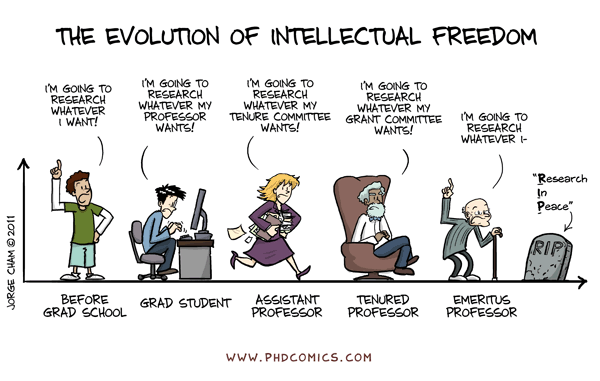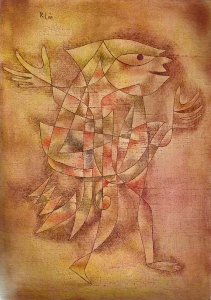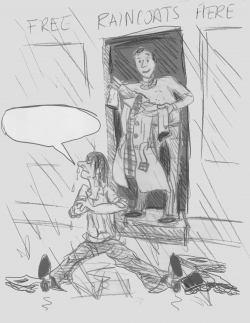Tuesday, January 5. 2016
RP: "I have repeatedly said that I harbour no suspicions about EOS. You repeatedly assert that I do.
You likewise keep assigning a variety of different motivations to me that are not true (and how would you know what my motivations are anyway?)
I do read your posts, Richard, including the snippets you tweet, to garner traffic for your blog.
But, by way of proof that I read your posts, here are a few snippets of my own, about suspicions, secretiveness and attributing motivations, to remind you: RP: "I would like to thank Bernard Rentier for his detailed and frank account of EOS... That said, it does seem odd to me that it took Rick Anderson two attempts to get this response from EOS."
RP: "To reiterate: I did not mention EOS in my post, and I harbour no suspicions about the organisation... That said, the defensive response to Rick’s questions about EOS underlines for me the fact that OA advocates are not by nature inclined to be open in their processes."
RP: "In fact, one might argue that the overly defensive responses to Rick’s questions themselves flirt with paranoia. Certainly they confirm me in my belief that there is a strand within the OA movement that tends towards non-transparency and non-inclusiveness."
RP: "Nor are they instinctively democratic. One need only monitor the Global Open Access List for a few weeks to see the hauteur with which OA “old sweats” pronounce on the topic, and castigate anyone who dares express a contrary view." You seem to be (1) confusing derisiveness (about the risible) with defensiveness, Richard, and (for some longstanding reason I really cannot fathom) (2) confusing openly, publicly "castigat[ing] anyone who dares express a contrary view" with "non-transparency and non-inclusiveness... instinctively [un]democratic."
I think you are quite mistaken. There is nothing undemocratic or non-transparent or non-exclusive about open, public criticism, quite the opposite (and regardless of the "hauteur" with which it might be expressed).
And I continue to hold and air openly the view -- which you are democratically free to ignore or refute or deride -- that (insofar as EOS or BOAI or your humble servant are concerned) you are sowing suspicions -- about closedness and exclusiveness -- that have no substance whatsoever.
I have two interpretations as to why you are doing this, one more charitable, the other less so:
The charitable interpretation is that you really believe the suspicions, which are fuelled by (or themselves fuel) your longstanding hypothesis that the reason the open access movement is moving so slowly is that it does not have an umbrella organization that includes all interested parties. (I think the hypothesis is mistaken, and that the slow progress is because of conflicts of interest -- as well as apathy -- that would not be resolved even if it were possible to draw everyone into the same tent.)
The uncharitable interpretation -- but even that one, since I know you, and know you have integrity, is only about what may be an unconscious "instinctive" tendency (dare I call it a journalistic one?), rather than a deliberate, calculating strategy -- is that you are airing the suspicions at times when there is no OA news of substance because they draw attention and traffic. RP: "BOAI was a meeting between a small group of like-minded people, and organised by a philanthropist with a specific political agenda. In the wake of that meeting OSI committed several million dollars to fund a number of OA initiatives (and has continued to play a key role in the OA movement since then). As such, those who attended BOAI took the Soros money but did nothing to make the movement “official” or inclusive, or seek to engage the research community in their plans..." I have to leave it to others to reply to this, as I do not think it deserves to be dignified by a response. If I made one it would undoubtedly be derisive...
There is a secondary hypothesis I also think you may hold, Richard (though I'm ready to say I'm mistaken, if you deny it), which is that you feel there is something undemocratic or contrary to academic freedom about OA mandates. I think the instincts that may be fuelling this secondary hypothesis in you are (1) the feeling that academics today are already far too put upon, along with (2) scepticism about metrics and perhaps about research evaluation in general, including peer review.
This is scepticism that I may partly share, but that I regard as having nothing to do with OA itself, which is about access to published, peer-reviewed research, such as it is. Reforms would be welcome, but what's needed in the meanwhile is access.
(And of course mandating a few dozen extra keystrokes per year for their own good is hardly a credible academic grievance; the real reasons for the resistance are not ergonomic but symbolic, ideological, psychological and wrong-headed. In a word, risible.)
And last, I think you are (instinctively) conflating OA with FOI.
Stevan Harnad

Monday, January 4. 2016
 Richard Poynder and I are apparently both OA " Old Sweats": Richard has been banging on about OA's needing an open umbrella organization about as long as I've been banging on about OA's needing Green OA mandates.
Now Richard is blaming OA's slow progress on his recommendation's not having been heeded; I do much the same.
So what is the difference between us?
I just keep banging on about the need for Green OA mandates, but Richard is now beginning to suspect that some secret conspiracy (because of the failure to create an OA open umbrella organization) is going on.
Richard is no doubt right that publishers are up to something, and it has to do with Gold OA and prospective deals with institutions and funders. The dealing is not open, but the fact that it's going on is no secret.
But it's trying to squeeze journalistic fodder out of a stone to seek anything of substance with these breath-takingly silly suspicions about BOAI and EOS.
Lampoon my own efforts all you like, Richard, but the one whose credibility is being retroactively eroded is yourself, if you don't resist taking the tabloid track in lean years.
And please de-conflate OA (open access to published research) from (FOI) freedom of information. Published research is already "free information" (in the FOI sense). It's the access to it (in the OA sense) that's not cost-free. FOI covers a lot more sinister territory, but it has nothing whatsoever to do with OA.
It wouldn't hurt to de-conflate OA from yet another sexy topic too -- "academic freedom": No, neither mandating nor providing OA is an assault on or threat to academic freedom, quite the opposite.
If you do decide to branch off into FOI and academic freedom, Richard, that will be splendid. There's much to do and learn there. -- But then forget about OA. There's no interesting connection whatsoever.
Now peer-review reform (if there were anything new and interesting to say about it) would certainly be relevant to peer-reviewed research publication — hence indirectly relevant to open access to peer-reviewed research publication. But only very indirectly. OA’s goal is already ambitious enough (and still far-away enough) without enlarging it to include peer-review reform (let alone feeding the planet, curing disease or redistributing wealth). But peer-review reform would certainly be a useful journalistic topic — if only there were something more than the already well-known speculations and failed experiments to report about it...
Tuesday, December 29. 2015
 From the thread " A creature of its own making?" on GOAL (Global Open Access List). Jean-Claude Guédon: "Alicia Wise always speaks with a forked tongue! I wonder how much she is paid to practise this dubious art?"
Richard Poynder: "I am not aware that Alicia Wise has ever been anything other than polite to members of this list. It does not show open access in a good light that every time she posts to the list her comments generate the kind of response we see below." I wonder what is going on here? Why are we getting lessons in etiquette on GOAL rather than discussing OA matters of substance?
Yes, Alicia is paid to keep on talking Elsevier double-talk. Yes, she does it politely. That's not the point. The point is that it is double-talk: Alicia Wise: "All our authors... have both gold and green Open Access publishing options." What that means is: You may either (1) pay
(always over and above what you pay for subscriptions overall, always heavily, and sometimes even doubly)
for (gold) OA
or else you may (2) wait
(for twelve or more months*)
for (green) OA.
That is indeed fork-tongued double-talk*: Say what sounds like one thing but mean another, and say it politely. (Why rile the ones you are duping?) *Actually, it's double-double-talk, and, as pointed out many times before, if Elsevier authors were sensible they would realize that they can provide immediate, unembargoed green OA if they wish, ignoring Elsevier's never-ending attempts at updating their pseudo-legal double-talk to sound both permissive and prohibitive at the same time.
So, yes, Richard is right -- and others (including myself: google “ harnad pogo”) have already said it time and time again in this self-same Forum -- that Elsevier is not the only one to blame. There are the dupers (Elsevier) and the duped (universities and their researchers). We all know that.
But it is not a co-conspiracy -- much as conspiratorial thinking comes in handy at lean times when there is nothing new to talk about.
So although the dupees have themselves to blame for allowing themselves to be duped, that does not put them on the same plane of culpability as the dupers. After all, it is the dupers who gain from the duping, and the dupees who lose, whether or not they have themselves to blame for falling for it.
Blaming the victim, as Richard does, below, also has a long pedigree in this Forum, but I will not rebut it again in detail. The short answer is that adopting effective Green OA mandates (rather than vilifying the victims for their foolishness) is the remedy for all the damage the victims have unwittingly allowed to be done them for so long.
And stop fussing about metrics. They too will sort themselves out completely once we have universally mandated (and provided) green OA. Richard Poynder: "What Jean-Claude’s criticism of large publishers like Elsevier and Wiley omits is the role that the research community has played in their rise to power, a role that it continues to play. In fact, not only has the research community been complicit [emphasis added] in the rise and rise [sic] of the publishing oligarchy that Jean-Claude so deprecates, but one could argue that it created it — i.e. this oligarchy is a creature of its own making.
"After all, it is the research community that funds these publishers, it is the research community that submits papers to these publishers (and signs over copyright in the process), and it is the research community that continues to venerate the brands (essentially a product of the impact factor) that allow these publishers to earn the high profits that Jean-Claude decries.
"And by now seeking to flip this oligarchy’s journals to OA the research community appears to be intent on perpetuating its power (and doubtless profits).
"One might therefore want to suggest that Jean-Claude’s animus is misdirected. [emphasis added]" And so are Richard's reproaches...
Your increasingly bored archivangelist,
Stevan Harnad
Friday, December 25. 2015
 Rick Anderson: "Stevan, is it really true that any institution can join the EOS? According to the webpage, membership is "available to approved institutions" (emphasis mine). I assume that EOS itself does the approving -- is that correct? And if so, that means that it's not really true that "any institution can join," is it?" Rick Anderson: "Stevan, is it really true that any institution can join the EOS? According to the webpage, membership is "available to approved institutions" (emphasis mine). I assume that EOS itself does the approving -- is that correct? And if so, that means that it's not really true that "any institution can join," is it?"
Ok. You caught me, Rick! I guess I'll have to 'fess up now: EOS is a secret organization whose true goals I am not at liberty to divulge. The approval of the approved institutions (just a small subset of the many who have applied for approval across the years) is done by an invisible college whose identities are all classified, along with the identities of the institutions and the true goal of the organization, but if you make a formal FOI request it might be possible to provide you with an edited transcript of the list (with identities coded for confidentiality).
Rick Anderson: "Stevan, Is it really true that the EOS is "public"? I don't see any list of its members anywhere on the site. (If I'm missing it, please do provide a link.) I would assume that an organization that is "public" (as distinct from a "secret society," the term at which you took such umbrage) would at the very least make its institutional membership a matter of public record, wouldn't it?"
You're right again, Rick. EOS is indeed not public: It is a secret society whose true purposes (which have no relation to what it says on the website) I am not free to reveal.
Rick Anderson: "And does the EOS really make all of its documents public? On the site I see a small list of briefing papers -- are those the only documents the organization has produced? No minutes, no agendas, no other documents that would normally characterize the work of an organization committed to transparency and public openness?"
I'm truly embarrassed now, Rick. Fact is, you've got me again! The documents on the website have nothing to do with the true objectives and activities of EOS. We do have minutes and agendas, but those are all confidential (especially our true goals) as we are in fact not committed to transparency and public openness -- or, for that matter, to openness of any kind.
[Please get out the clippers. Many quotes here suitable for clipping and using in the context of your choice, Rick!]
Rick Anderson: "To be clear, the EOS is under no more obligation to be public and transparent in its work than any other organization is -- this isn't about legal or ethical obligation. It's just about commitment to principles of openness and transparency."
You're quite right Rick, and I'm really grateful to you (and to Richard too) for giving me this opportunity to unburden my conscience, which has been weighed down for years with remorse about all the play-acting we've been doing. Indeed Yuletide is almost the optimal moment for at last coming clean about this shabby business. (I can think of only one early spring date that might have been even better.)
Congratulations on your successful sleuthing! You have both (and of course the intrepid PMR too!) performed an invaluable service to the academic community and the public at large for unmasking this sordid affair. Please do keep up the courageous and insightful work in the service of openness, transparency and verity. In the world we live in today, one can't be too careful.
"Stevan Harnad"
Instalment #2 (2015/12/28)
Yule-Foolery
Despite the season, I am beginning to take a less jolly view of this exchange than Bernard Rentier does (if only because I have been less successful in my planned holiday catch-up than I had hoped, which makes the diminishing returns from this sort of dawdling increasingly diminutive).
In particular, although the suspicions about EOS were silly from the get-go -- they didn't even have the elementary support of a putative motive that even amateur detective novels know they need in order to generate suspicion -- they seem now to have sunk into abject absurdity. Levity is clearly unavailing to restore common sense, so let me provide a motive (in fact three) -- not for the suspected lack-of-transparency on the part of the suspects, but for the suspiciousness on the part of the sleuths: (1) For PMR the motive is an inordinate fondness for open data, even if it is at odds with OA -- a motive EOS clearly does not share.
(2) For RA the motive is unfondness of OA itself, which EOS again clearly cannot share (I won't venture an ulterior motive for RA's unfondness).
(3) For RP the motive is seasonal shortage of substance. So let me propose three topics of substance, any of which would make a jolly basis for seasonal discussion in "Open and Shut":
I. Can anyone provide a substantive link between the need for open access to published, peer-reviewed research and the need for peer review reform?
II. Can anyone provide a substantive link between the need for open access to published, peer-reviewed research and the need for academic freedom?
III. Can anyone provide a substantive link between the need for open access to published, peer-reviewed research and the need for freedom of information?
(And can anyone still remember what the words "access to research" meant before they somehow got conflated with re-use rights or with "transparency"?)
I've been on this ride a long time now but I can't help noting that as we get exercised over all these other worthy matters, we are still rather far from having open access to published, peer-reviewed research...
Friday, July 10. 2015
 In an entertaining posting, " The Deniability of the Blog," David Worlock chides me for (amongst other things) failed predictions, hoping that I (and Derk Haank) stick around long enough to keep providing entertainment.
Stay tuned. Dunno about Derk but I’m still around for the long haul.
But I do want to point out that I haven’t the slightest interest in journal publisher revenues (though they will of course plummet sooner or later); never had.
There are two problems for journal article users: articles' unaffordability and their inaccessibility. And I’m interested solely in the latter. OA is the solution to that; the former problem will then take care of itself.
Yes, eventually peer review will die, journals will die, research will die and the universe will devolve into heat death. But OA will come before all that.
If David wanted to pillory me with having been taken by surprise by events, he could easily have found many genuine examples of my stupidity:
Yes, I had sincerely believed that within a year or two of my 1994 Subversive Proposal, all researchers would be self-archiving. I never dreamt they would keep — so to speak — sitting on their fingers for at least another two decades.
Nor did I imagine that if they got free software in 2000 to create interoperable institutional repositories, their posteriors would stay put, their digits still immobile.
Taken by surprise again that once their institutions and funders began in 2003 to mandate their fingers into action where the sun does shine, all of them — the researchers, their institutions and their funders — would instead be blinded (and blindsided), beginning about 2006, by gold-dust, tempted to heed instead the siren call of journal publishers to “leave the keystroking to us — for a fee.”
What I did anticipate all along, however, was that if authors didn't hurry up and do the stroking, publishers would and could make their offer look like an un-refusable one, trying to gild the lily by embargoing the green option of authors flexing their own fingers.
But now there’s still the Button to buttress the mandates and save the day for digital self-help, with immediate Almost-OA, immune to publisher blackmail.
Moral: One cannot second-guess human nature; only what is feasible, sensible and optimal. The rest is in the hands of the gods.
But do stay tuned…
Saturday, August 10. 2013

Abundantly foretold
All warning signs have been:
OA is just Fools Gold
Till first there's Global Green
Wednesday, October 24. 2012
From Peter Murray-Rust's blog: Peter Murray-Rust: "if you post anything [on GOAL] that does not support Green Open Access Stevan Harnad and the Harnadites will publicly shout you down. I have been denigrated on more than one occasion by members of the OA oligarchy (Look at the archive if you need proof). It’s probably fair to say that this attitude has effective killed Open discussion in OA. Jan Velterop and I are probably the only people prepared to challenge opinions = most others walk away."Mike Taylor: "I don’t bother arguing with Stevan on the principle that you both get dirty but the pig likes it… He’s made himself the People’s Front of Judea."
 (many thanks to Andrew Adams for this gem!) (many thanks to Andrew Adams for this gem!)
Peter Murray-Rust wrote: "I recently sat through an hour lecture by SH whose subtitle was "What Peter Murray-Rust thinks and why he is wrong". The thoughts attributed to me were factually incorrect." One of the wonderful things about facts is that sometimes one can actually check them, objectively!
The full video of that lecture -- "How & Why the RCUK Open Access Policy Needs To Be Revised" -- is online for all to see, along with a PDF containing my written text and all my powerpoints. I would be very interested to hear if anyone finds anywhere either a subtitle "What Peter Murray-Rust thinks and why he is wrong" or anything that even resembles it.
In that lecture, I did make some references to Peter Murray-Rust, his work and his goals, in what I believe was an entirely respectful and complimentary way, praising his contributions and sharing his goal of machine data-mining rights (CC-BY) over all journal articles where it's needed (such as in his field).
The only two points on which I diverged from Peter Murray-Rust were points of strategic priority: (1) I said that the right to do machine data-mining on journal articles (CC-BY) was even harder to get from publishers than the right to make journal articles freely accessible online (Gratis Green OA), so it would be better to first grasp the Gratis Green OA that is already within reach at no extra cost -- by mandating it -- rather than renounce it in favour of over-reaching instead for what is not yet within immediate reach at no extra cost, as the Finch Report had recommended doing.
(2) And I also said that the Finch/RCUK strategy -- of pre-emptively paying publishers extra (over and above paying subscriptions) for CC-BY Gold OA to UK's 6% of all worldwide research output, in all fields, when very few fields urgently need CC-BY but all fields need free online access -- is not only a waste of money, but it does not even produce what the few fields that need CC-BY require, which is data-mining rights for all the worldwide research output in the field, not just the UK's 6% of it. On the contrary, the pre-emptive payment policy of Finch/RCUK simply makes it harder to get even Gratis Green OA for the rest of the world's research output (94%) (because it is unaffordable, and because it incentivizes publishers' offering hybrid Gold OA and increasing Green OA embargoes). Now if what Peter Murray-Rust thinks is what BIS/Finch/RCUK think, then I was indeed, inter alia, criticizing what Peter Murray-Rust thinks.
But certainly not under the subtitle "What Peter Murray-Rust thinks and why he is wrong"...
My talk was not about Peter Murray-Rust.
Stevan Harnad
Some references on "Open Disagreement"
Harnad, S. (1978) Editorial. Behavioral and Brain Sciences 1(1)
Harnad, S. (1979) Creative disagreement. The Sciences 19: 18 - 20.
Harnad, Stevan (1985) Rational disagreement in peer review. Science, Technology and Human Values 10: 55-62.
Harnad, S. (1987) Skywriting (unpublished) Since published as Sky-Writing, Or, When Man First Met Troll. The Atlantic, Spring Issue 2011
Harnad, S. (1990) Scholarly Skywriting and the Prepublication Continuum of Scientific Inquiry Psychological Science 1: 342 - 343 (reprinted in Current Contents 45: 9-13, November 11 1991).
Harnad, S. (1997) Learned Inquiry and the Net: The Role of Peer Review, Peer Commentary and Copyright. Learned Publishing 11(4) 283-292.
Harnad, S. (2002) BBS Valedictory Editorial Behavioral and Brain Sciences 22(1)
Harnad, S. (2003/2004) Back to the Oral Tradition Through Skywriting at the Speed of Thought. Interdisciplines. Retour a la tradition orale: ecrire dans le ciel a la vitesse de la pensee. Dans: Salaun, Jean-Michel & Vendendorpe, Christian (dir). Les défis de la publication sur le web: hyperlectures, cybertextes et meta-editions. Presses de l'enssib.
Poynder, R. & Harnad S. (2007) From Glottogenesis to the Category Commons. The Basement Interviews.
Harnad, S (2012) The Optimal and Inevitable outcome for Research in the Online Age. CILIP Update September 2012
Tuesday, July 19. 2011
 Klausgrafs KlausGraffiti scheinen für einige Grund immer schriller und koprolalischer zu werden... Komisch, aber was kommt danach? "Harnad kippt seine dogmatische Jauche... KlausGraf - am Montag, 18. Juli 2011, 17:28 - Rubrik: Open Access Kommentar verfassen http://archiv.twoday.net/stories/34630904/
"Erneut Unflat von Harnad...: Posted by Klausgraf to oa.new on Fri Jul 22 2011 http://bit.ly/oNixF3"
Saturday, October 31. 2009
Tuesday, October 27. 2009
See also:
Raincoat Science: 43 More Open Access Haikus
 Bill Hubbard has just announced the winner of the SHERPA "Spirit of Open Access" competition: Set your research free
As flowers offer nectar
To the passing bee
Miggie Pickton, University of Northampton, UK
Here are my own (losing!) entries, submitted under the pseudonym of "Matthew Bashore," only five of them a strict 5/7/5, the rest increasingly minimalist. (My own entries and most of the others were, strictly speaking, more in the spirit of senryus than haikus.) ( I've added a few, written since, that would have been dead giveaways.) 17:
scribbler and scholar
behind the self-same barrier
one unwillingly
the work of others
easier for me to steal
than donate my own
tithes to help cure plague
instead they're helping tradesmen
to peddle their wares
via eyes and minds
its path to noble laurels
my work firewalled
skies above all clear
cosmonauts still unembarked
worried flight's not cleared fingertips so quick
stroke keys to boycott others
not to free their own
golden sun afar
blinds us to greener vistas
open to our view
yearning for freedom
we do not reach out for it
though its in our grasp
set it free at last
no lets fuss instead about
costs rights wrath and gold
why lord gautama
left india for china
keeps our fingers still
the elean sage
found no way to cross the room
we too paralyzed
what the tortoise asked
achilles to try in vain
we now must mandate
scholars all are monks
do monks have buddha nature?
answer still is mu 13:
give-away findings
free for all
no I want my cut
"roses red violets blue"
stays unread
till paid by you
eureka
see what I have found
first shell out to look
ideas doomed
to stillbirth
toll-booths loom ahead
11:
scholars' spring
skyward glance
trade winds gathering
new era
thoughts at long last free
pay to view
9:
fruits of IQ
unlike haiku
free
free at last
not so fast
toll-gates last
along the road
to Stockholm
toll-booths
8:
like speech
text if metered
lose/lose
7:
words fleet
script perdures
bits blocked
ideas
born free
enchained
me to you
no
first pay him
charity
pricily
sold
|

 Richard Poynder and I are apparently both OA "
Richard Poynder and I are apparently both OA " From the thread "
From the thread " In an entertaining posting, "
In an entertaining posting, "







